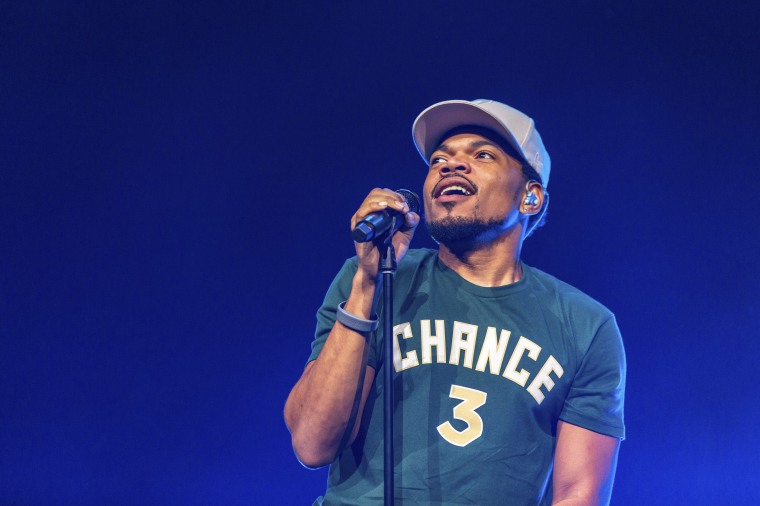On the latest episode of Facebook Watch's "Peace of Mind With Taraji," actor Taraji P. Henson, co-host Tracie Jade and recording artist and activist Chance the Rapper discussed the stigma surrounding mental health among Black men.
"Trust is probably the No. 1 reason why specifically African Americans do not go to therapy," said Jade, the executive director of the Boris Lawrence Henson Foundation, which advocates for mental health care. "It takes a lot to trust you with our information."
Only 26.4 percent of Black and Hispanic men ages 18 to 44 who experience mental health challenges actually seek treatment, the American Psychological Association noted. Of the Black men who do try counseling, those who may prefer to work with a Black professional may be hard pressed to find one. As of 2019, only 4 percent of the doctorate-level psychology workforce identified as Black, according to the APA.
"I think Black men are naturally guarded," Chance said. "Your weakness is preyed upon. So I think it's a defense mechanism."
A 2016 study found that many Black men were reluctant to seek medical care because of perceived racism and internalized masculinity norms, the APA reported.
The Chicago-based rapper admitted that he even has a hard time opening up to therapists. "I don't have a therapist, and I believe in therapy. I don't necessarily trust going to a stranger and telling them everything about my life," he said.
However, he shared that he has gone to relationship counseling with his wife, which was "extremely helpful" for his marriage.
Over the years, Chance has become a vocal advocate for mental health. In 2018, he pledged $1 million to Chicago Public Schools' mental health services.
In the interview, Chance said his mental health awareness journey was sparked a few years ago when his friend experienced a mental health crisis so severe that his friend's family felt they no longer had the means or resources to support him.
In an effort to help his friend find a place to stay, Chance said he soon realized "the kind of care he needed wasn't available." Chance said he turned to his nonprofit organization SocialWorks to find a solution.
"We basically found every possible mental health initiative within the city of Chicago and then within Cook County and eventually through the entire state of Illinois," Chance said, "and created this app that allows people to get in contact, whether it's an in-person meeting or telehealth, with a mental health service provider."
In 2019, 24.7 percent of adults were unable to get the mental health treatment they needed, according to Mental Health America. Black men, in particular, face the added barrier of needing culturally relevant treatment.
In lieu of treatment, many Black men resort to bottling their emotions up, Chance said: "It takes a lot to be cathartic; to cry; to, like, empty yourself."
"I saw my friend killed in front of me when I was 19. I seen people I didn't know get killed too, and you become numb to it," he said. "You don't realize until later, it could have lasting effects on you."
In an attempt to break the cycle, Chance suggested leading by example might be what it takes to encourage Black men to be vulnerable.
"When you show your emotion, it allows other people to show emotion," he said.
